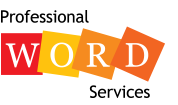Key messages in your tender response writing help emphasise the strengths and benefits you will bring as the winning tenderer.
A strategy session before you start answering the tender questions can be used to develop three to four key messages that can be woven into many of your responses and used as the basis of a strong and focused executive summary.
Gather, say, 3-6 people who know a lot about the tendering company together in your meeting or conference room with a whiteboard and someone designated as the facilitator. Everyone should have read the tender documents and have a good understanding of what the tendering company wants.
Discuss and record (as data points) what the tendering company wants, both from what is revealed in the documentation and other personal interactions the team may have had with the company’s staff, such as meetings, discussions, other work interactions or socially.
Funnelling data into key tender messages
When I conduct a strategy session with a client, I use a set of eight questions that starts by gathering many data points and then funnelling them down to what is really valued and important to the tendering company. These emerge as 3-4 statements – key messages – that distil what you can best provide matched with what the tendering company most wants. (Read more about tender writing services)
At least one of these key messages (and some of its data points) will apply to most of the questions you have to answer in the tender response. By emphasising each of the messages when you have the opportunity, the aim is for the procurement panel readers to come away remembering these key messages (if nothing else!) and with a belief that your company is a great match for their needs.
The key messages can also form the basis of an outstanding executive summary. Done well, the key messages provide a structure that enables you to summarise every strength in your tender response. A well-written executive summary can be a very persuasive piece of writing!
What do companies want?
Conducting the strategy session enables you to personalise key messages to an individual company and recognise their key motivations and values. Clients always find it an enjoyable and enlightening experience.
Generally, every tendering company wants at least these four basic things:
- A company with the skills, knowledge, capability and experience to carry out the work to satisfactory/excellent standards.
- A company that is financially stable and will see out the contract term.
- Value for money in the pricing.
- No risk in selecting the winning company, particularly during transition if a new supplier is chosen. (Many factors go into making you no/low risk, such as IT systems, policies, processes and procedures, skills and experience, resourcing, successful track record, etc.)
Your strategy session will reveal the other words that are important to weave around these basics to make them vital key messages to the tendering company. For example:
ABC’s work history and experience demonstrate our ability to successfully partner with organisations and produce plumbing work of excellent quality.
The strategy session is a great way to distil key information in tender documentation, to get everyone in the response team thinking along the same lines, and to uncover what is important to the tendering company. It positions you well on the pathway to producing an excellent tender response with an improved chance of success.
Next article in the Tenders 101 series: How to answer a tender question
Photo: A luscious treats cabinet in Critter Country, Disneyland Park, Anaheim, California.

